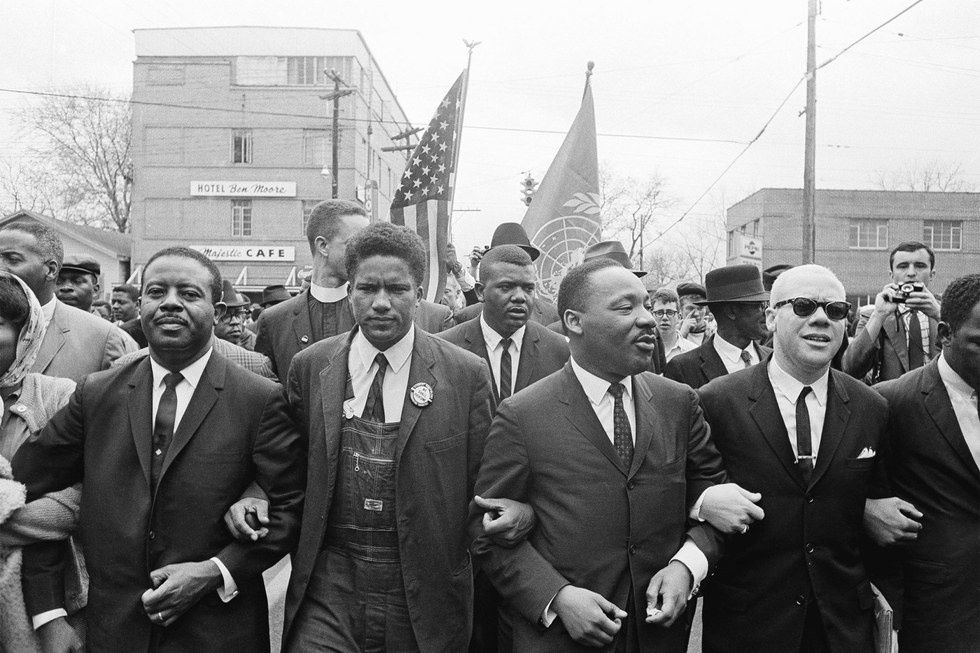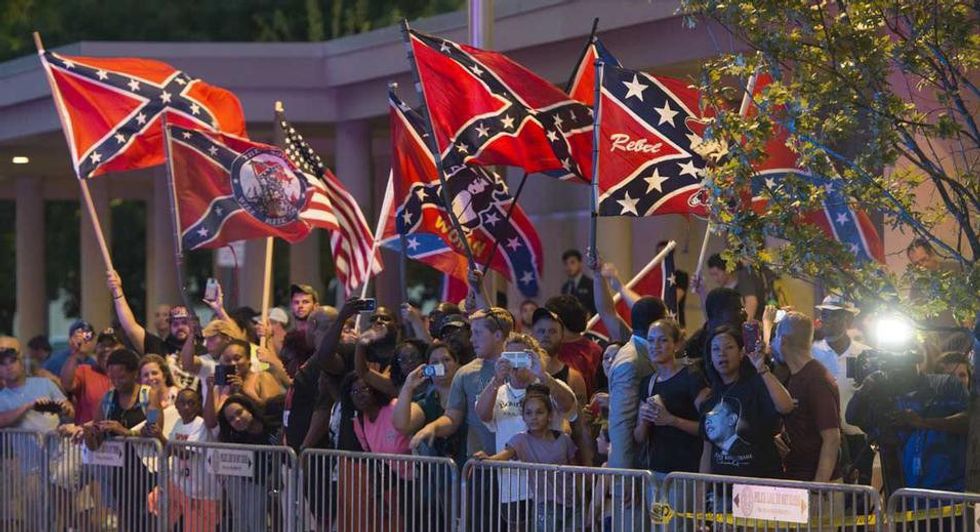This past Saturday, millions of people around the world marched in the wake of Trump's inauguration. I've seen an outpouring of support for the women who marched, but I've also heard some criticisms as well. Here are a few of the most common ones, and why I believe the protestors are justified.
1. "Protesting accomplishes nothing."
I can assure you, there have been countless times throughout United States and human history when protesting has accomplished its goal.

What about the protests that took place during the Civil Rights Movement? Or the Suffragettes? Or the antiwar demonstrations in the '60s? Or the Stonewall riots? Hell, even the Boston Tea Party was a protest, and it was a major catalyst that led to the creation of the United States in the first place.
An estimated 3.3 million people marched in the Women's Marches this past Saturday in the United States alone. This may have been one of the largest demonstrations in U.S. history. If that doesn't accomplish anything, then I don't know what will.
2. "Protests are disruptive and violent."
Actually, most protestors don't condone violence. It's well within our constitutional right to peaceably assemble, and the Women's Marches that took place this weekend, while disruptive, were nonviolent. There is a difference between a protest and a riot, and while the two are connected, justifying riots is a conversation for another time.
As for disruption, well, isn't that the point of a protest? The reason people protest is to make their voices heard. Hundreds of thousands of people marching through a city might be inconvenient, but it sure as hell gets people's attention. It's the mark of a successful protest.
3. "He is your president, accept it."
This is a common response to the #notmypresident hashtag. As I see it, the hashtag represents three things:
One, that people doubt the legitimacy of his presidency, considering that he lost the popular vote by three million votes and there is evidence of Russian interference in the election.
Two, that he lacks the qualifications necessary for the position, and many people view his stances as unconstitutional and unAmerican.
Three, that a president's job is to be a public servant and represent the people. Many protestors feel that Donald Trump does not represent them or their values, and that he does not have the best interests of the American citizens in mind.
It doesn't mean, literally, that he was not inaugurated and currently does not hold the title of President of the United States. People who use the hashtag are not delusional. They just hold the person with the most important job in the country to a high standard.
4. "There should be a peaceful transition of power."
Was there a peaceful transition of power when Obama took office in 2009?
Obama's presidency was certainly met with opposition, including an unfounded conspiracy theory that he was a Muslim born in Kenya (which Trump supported) and protests, many of which were hostile by nature. Even when he was president, he was met with an obstructionist House of Representatives which prevented him from taking many meaningful actions as president.
Now, I'm not saying that this extreme partisanship is a good thing. I think that we need more common ground in politics, and politicians should be willing to compromise and work towards a solution that benefits as many Americans as possible. But when it comes to civil rights – when it come to affordable healthcare, or protection against sexual assault, or racial equality, or a laundry list of other issues – these rights are too important to give up. This is why we resist Trump and his cabinet picks; we have made too much progress to have a president who brags about groping women and who would choose a known white supremacist for his cabinet.
This is more than partisan politics; this is a matter of civil rights.
5. "You lost, get over it."
My only response to this is:
You lost, get over it.











































